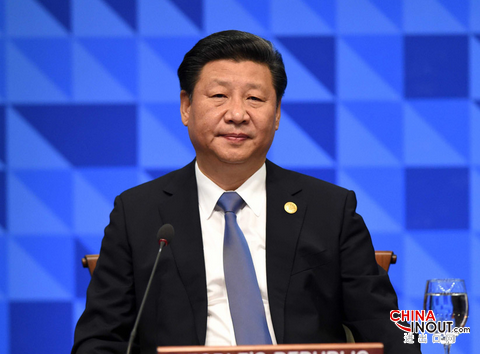国家主席习近平在周三表示,中国将大幅减弱对外国投资的限制,同时他号召建立亚太自贸区(FTAAP)。
“我们将加强外国投资者管理制度改革,大幅降低外资进入市场的准入门槛,提高对知识产权的保护,加快建立开放,透明,公平,高效的市场环境。”习近平在在马尼拉的亚太经济合作组织领导人会议讲到。
习近平表示,亚太经济体必须“公平参与、充分协调”自由贸易安排,以促进区域经济一体化,提高区域的开放性和包容性。
新的自由贸易安排不断浮出水面,习近平说,但在加快推进去年北京APPEC会议提出的FTAAP建设时,他们已经造成了分散区域经济的可能。
据新华社发表的演讲稿,习近平表示,中国是亚太地区的一部分,并将通过“一带一路”项目和亚投行(AIIB)继续奉行开放包容的地区合作。
专家认为,习近平的评论针对美国领导的跨太平洋伙伴关系协议,这项协议将中国这一世界第二大经济体排除在外。
中国国际经济交流中心经济研究部主任徐洪才表示,“TPP在一定程度上是相对排外的,中国需要更加开放包容的亚洲市场。”
习近平还说,与会的各国领导人一致认为,尽管全球经济正在“稳定”复苏,但仍缺乏“坚实的”基础并继续面临挑战,亚太地区国家必须率先推动经济增长。
习近平说,“面对动荡的现状,所有亚太经济体必须肩负起这一重任,团结起来,努力推动全球经济向前发展。”
中国社会科学院世界经济与政治研究所所长黄炜说,由于许多国家在经济发展方面没有达到高收入的地位,经济发展仍然应该是亚太经合组织会议的首要目标之一。
“对亚太经合组织来说,相比于陷入政治,专注于经济可能是一个更好的选择,”黄炜说。(中国进出口网)
President Xi Jinping on Wednesday said China will significantly reduce restrictions on foreign investment and called for the establishment of a Free Trade Area of the Asia-Pacific (FTAAP).
"We will step up reforms in the foreign investors management system, substantially cut restrictions on market access for foreign investment, improve intellectual property protection, and foster an open, transparent, fair and highly efficient market environment," Xi told the Asia-Pacific Economic Cooperation (APEC) CEO meeting in Manila.
Xi said Asia-Pacific economies must "participate fairly in and fully coordinate" free trade arrangements to boost the integration of regional economies and improve openness and inclusiveness in the region.

New free trade arrangements continue to surface, but they have caused concerns over the potential of fragmenting regional economies, Xi said, while seeking to accelerate the establishment of the FTAAP, an initiative proposed at the APEC meeting in Beijing last year.
Xi said China is part of the Asia-Pacific region, and will continue to pursue open and inclusive regional cooperation through initiatives such as the "Belt and Road" and the Asia Infrastructure Investment Bank (AIIB), according to a transcript of his speech published by the Xinhua News Agency.
Experts said Xi's comments on the FTAAP are aimed at the US-led Trans-Pacific Partnership (TPP), of which the world's second-largest economy has been excluded.
"The TPP is relatively exclusive so far and China wants a more open and inclusive Asian market," said Xu Hongcai, director of the Economic Research Department under the China International Economic Exchanges.
Xi also said world leaders at the summit agree that while the global economy enjoys a "stable" recovery, it still lacks a "solid" foundation and continues to face challenges, and Asia-Pacific countries must take the lead to boost economic growth.
"Facing turbulent currents … all economies in the Asia-Pacific region must take on the task, pull together and strive to push the global economy forward," Xi said.
Since many countries in the region haven't achieved a high-income status, focusing on economic development should still be the priority of APEC meetings, said Huang Wei, a director of the Institute of World Economics and Politics of the Chinese Academy of Social Sciences.
"For APEC, instead of getting bogged down by politics, focusing on economics may be a better option," said Huang.











